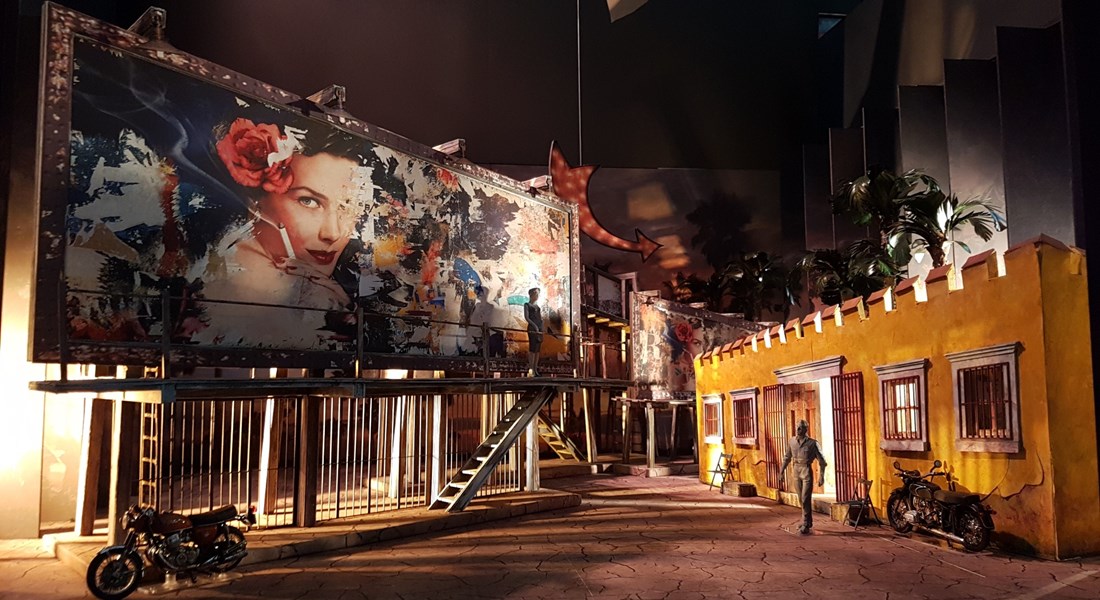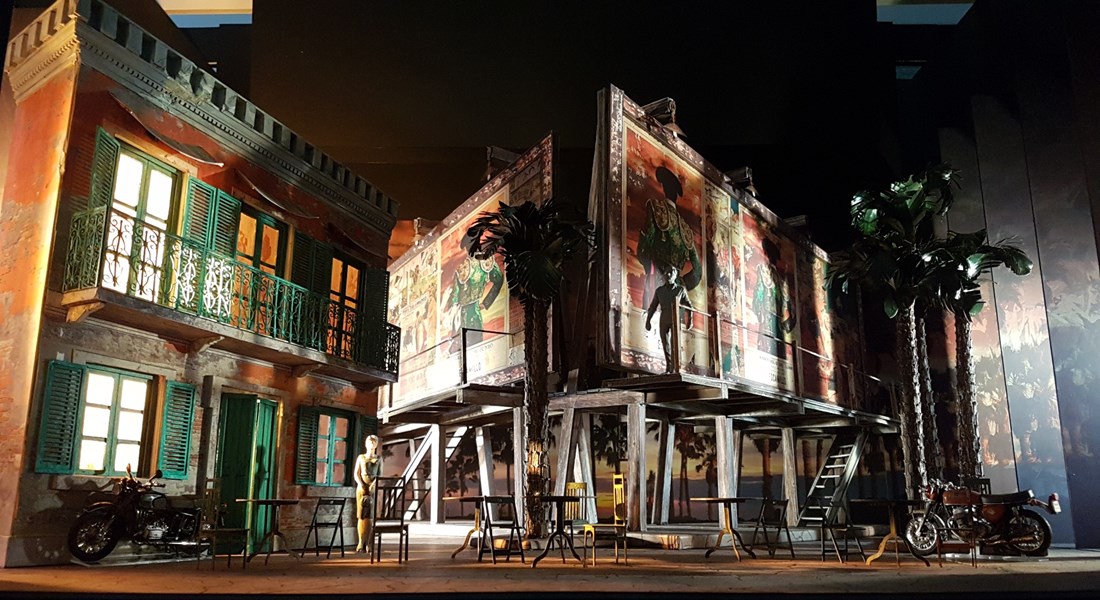Posted5 Apr 2018
- In
Q&A with Carmen director Paul Curran
Director Paul Curran talks about approaching Carmen for the first time, how the opera can resonate today, and developing characters with the young, talented cast.

What are the challenges of creating a new production of Carmen, one of the most popular, well-known operas?
That’s a simple one – it is one of the most frequently produced operas in the world, so everybody has an opinion on how it should look, how it should sound, and how it should be. So, approaching it now for the first time, I approach it with both great respect and admiration, but a very open mind as to how I see the story today. Directors are essentially interpretative artists; we retell and reinterpret other people’s stories. I have been asked to do Carmen many, many times over the past 25 years and have always found myself saying no to it. Somehow, this time, and especially Opera Philadelphia, just feels right.
Given that it was not immediately popular, why do you think Carmen has become such a beloved and enduring opera?
Great tunes, great story, and fascinating characters. The musical numbers have been incorporated into every area of life since the 1875 premiere – from gondoliers on canals to advertisements for pretty much anything, and also dozens of pop tunes. That has to say something for its impact and staying power. Plus, Carmen is a story all of us can relate to: An outsider to society against whom circumstance is working harshly but who does everything in her power to build herself a better life. Had the snobs of Parisian society (who decided it was a disaster and wanted it forgotten) had their way, Carmen would have disappeared due to its working-class leading lady and her suspicious lifestyle (to a morally tight public). The fact that so many of those condemning this story were involved in numerous scandals and disgraces is the perfect answer to why the fight against hypocrisy is a great charger of art in general.
How can the story resonate with modern audiences?
Our own society is replete with stories of people on the fringes of society or the inner circle who have been told they can never “get in” due to their age, race, sex, creed, or whichever restrictions we put on things. From actors trying to get into a Hollywood career and facing sexism to women meeting the glass ceiling of the corporate world and feeling jammed and limited while others soar above. Carmen encases all of those stories in its allegory of breaking the mold and trying to break free as your own person.

When and where is your production set?
Ours is set in the late 1950s in a non-specific Hispanic place similar to Havana, Miami, or Seville itself.
What was the inspiration behind the setting, and how does that setting and design affect the story of Carmen?
We were very much looking for a time and place that was both distant enough in history and close enough for a modern audience to relate to. Somewhere for the story to fold out and have those watching it feel they recognize the characters and actions. If we followed the French censors of 1875 and did a “cleaned up” version they insisted upon, it might feel too far away to an audience used to watching movies and HBO, etc. Most people will have seen West Side Story or "The Sopranos," so we are hoping that a setting closer to our own times might give a more immediate feel to telling the story. The late 1950s was an interesting era of conservatism which targeted women in society in a very patronizing and sexist way and it took nearly a decade for a social and sexual revolution in the ‘60s to begin to address women’s emancipation. Bizet was perhaps ahead of his time in writing a story of a societal outsider and I feel the end of the ‘50s reflects that best for a modern audience, where we have so much on film and record. Maybe it’s because I’m middle aged now…?
What moments in the opera are you most looking forward to bringing to the stage?
This is a very hard question! There are so many iconic moments in Carmen that it’s almost impossible to select a favorite. I think my main aim to is create a show that feels like it runs like a movie – very much in a way what Bizet was trying to do in his attempt at what we now know as “verismo,” or realism. We have a pretty fantastic young cast, so I am particularly looking forward to creating and developing characters with them. This generation, like all others before them, must be given the chance to play and interpret what have become classic stories in their own way – a unique way for them and for their contemporaries. There is no single way of playing any of the characters in Carmen, there is only exploring and expressing them through your own society and experience. This generation of singers is the future, we must help them in every way we can.
Leave your comment below.

 Facebook
Facebook Twitter
Twitter More
More